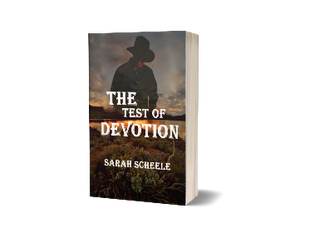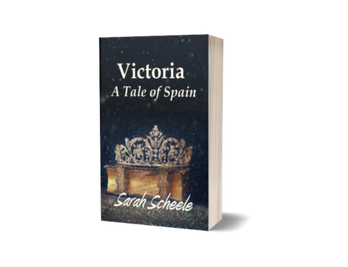Sarah Scheele's Blog, page 11
November 28, 2019
Of Literati and the Underworld
The two Palladia stories weren’t originally written as companions. In fact, the first draft of Consuela had a historical setting and was a filler in between the first and second parts of Victoria: A Tale of Spain. But after a number of years, Consuela quietly migrated over into Palladia. This made me able to explore something we don't get to see in City of the Invaders--the Invader point of view.
In the first book, Invaders are shown as bad. Katia probably feels this way because the only Invaders she personally knows tried to set up her family. But the situation is a little more complicated than good-EC and bad-Invaders, as Miss Plummer discovers in Consuela. Unlike Invaders, EC who are bad have the element of surprise, because people tend to root for minority groups. So Mr. Lazeemboi is able to sneak up on everyone and this time we get to see an Invader's viewpoint on that.
Consuela wasn't needed where it was anymore once "Victoria" and "Alyce" merged into one book, and adding it into the mix of Palladia gave more focus to both it and to Palladia generally. The story is now from the perspective of a young Invader, so it offers some fairness and clarity that balances City of the Invaders. After all, the more we see of the world, the more we notice this unlikely blend of closed-off literati and scummy, drifting street criminals actually have a great rapport with each other. The majority of people in Palladia belong to two groups that have the least possible in common.
Or maybe they have a lot more to do with each other than meets the eye.
And there will be more updates.
In the first book, Invaders are shown as bad. Katia probably feels this way because the only Invaders she personally knows tried to set up her family. But the situation is a little more complicated than good-EC and bad-Invaders, as Miss Plummer discovers in Consuela. Unlike Invaders, EC who are bad have the element of surprise, because people tend to root for minority groups. So Mr. Lazeemboi is able to sneak up on everyone and this time we get to see an Invader's viewpoint on that.
Consuela wasn't needed where it was anymore once "Victoria" and "Alyce" merged into one book, and adding it into the mix of Palladia gave more focus to both it and to Palladia generally. The story is now from the perspective of a young Invader, so it offers some fairness and clarity that balances City of the Invaders. After all, the more we see of the world, the more we notice this unlikely blend of closed-off literati and scummy, drifting street criminals actually have a great rapport with each other. The majority of people in Palladia belong to two groups that have the least possible in common.
Or maybe they have a lot more to do with each other than meets the eye.
And there will be more updates.
Published on November 28, 2019 08:30
November 21, 2019
God Knows Best
After Bellevere House was written, I realized I had a lot of books published, unpublished, and in need of republishing. For a while, it looked like my writing career had stalled. After all, with such a disorganized backlog of material and no promise yet that any of the stories had much of an audience, I felt little encouragement to continue. So I just spent some quiet time putting those old stories in order while I waited for the next thing to happen. The Bible talks about “waiting on the Lord,” and it’s a phrase often heard in Christian devotionals and Christian living books. But it’s not easy to see it in action. Patience is, as Lloyd Alexander put it, one of the more difficult virtues.
Waiting was the right thing to do, though, and patience is called a Virtue for a reason. It’s yielded far more fruit than jumping ahead would have. Not only did work on those old publications help me find their audience, I learned much about that audience. I found it wasn’t all the same person. Each book grew under my eyes like pottery, taking shape, until I saw different people in each book. A lot of authors write steadily for just one reader—they become a “go-to” for that reader, a safe place where the reader knows to expect a tried-and-true. That’s great for many people, but you don’t have to write that way. It’s also okay to have many different readers.
And the best part was that taking a couple of years before I worked on anything new allowed many ideas to start flowing into my mind. I now have 4 or 5 exciting concepts that are growing rapidly and each of them is different from what I’ve written before. And different from each other, as all my previous books have been. Without taking time with my older books, my creative juices might have died out. You can over-write, you know. But instead they are getting stronger and in the process, so are my older books.
Waiting means you don’t have all the answers yet. And it also means God does know them and will soon share them with you.
And there will be more updates.
Waiting was the right thing to do, though, and patience is called a Virtue for a reason. It’s yielded far more fruit than jumping ahead would have. Not only did work on those old publications help me find their audience, I learned much about that audience. I found it wasn’t all the same person. Each book grew under my eyes like pottery, taking shape, until I saw different people in each book. A lot of authors write steadily for just one reader—they become a “go-to” for that reader, a safe place where the reader knows to expect a tried-and-true. That’s great for many people, but you don’t have to write that way. It’s also okay to have many different readers.
And the best part was that taking a couple of years before I worked on anything new allowed many ideas to start flowing into my mind. I now have 4 or 5 exciting concepts that are growing rapidly and each of them is different from what I’ve written before. And different from each other, as all my previous books have been. Without taking time with my older books, my creative juices might have died out. You can over-write, you know. But instead they are getting stronger and in the process, so are my older books.
Waiting means you don’t have all the answers yet. And it also means God does know them and will soon share them with you.
And there will be more updates.
Published on November 21, 2019 08:30
November 14, 2019
The Invisible Romance
When “Victoria” got pieced together with “Alyce,” it became immediately clear that there might not be quite enough Bella and Ignacio as people would wish. We barely get to see either of them and the flashes on the side are tantalizing. But it’s mostly a story about Victoria, a teenage girl whose life is becoming dominated by a little-seen, sinister man. She gets to know a shady King, his outspoken brother (whose overconfidence just spells out how in love with Victoria he’s going to be), and some middle-aged people who are merely puppets for the shady king and the sinister man. Although they don’t know this themselves and believe they are very important!
This is a great plot and makes the book a fun read.The action, the hint of romance, the characters—everything was finally brought together by the rewrite. But if there were something that there Could Be More Of But Isn’t (that eternal debate that’s so much fun to have) it would be Bella and Ignacio’s back-and-forth with each other. We don’t get to see most of it and there wasn’t more in the original version of the story either. Ignacio is part of the shady government plot and even fishier sinister-outlaw plot, so he might not be someone you’d like your sister to run off with.
But Bella knew about the Hirado before anyone. There might be a lot of things Victoria doesn’t realize about her sister.
And there will be more updates.
This is a great plot and makes the book a fun read.The action, the hint of romance, the characters—everything was finally brought together by the rewrite. But if there were something that there Could Be More Of But Isn’t (that eternal debate that’s so much fun to have) it would be Bella and Ignacio’s back-and-forth with each other. We don’t get to see most of it and there wasn’t more in the original version of the story either. Ignacio is part of the shady government plot and even fishier sinister-outlaw plot, so he might not be someone you’d like your sister to run off with.
But Bella knew about the Hirado before anyone. There might be a lot of things Victoria doesn’t realize about her sister.
And there will be more updates.
Published on November 14, 2019 08:30
November 7, 2019
The Great “Who Cares?”
When I started watching digital movies, I used an app called Vudu that enabled me to scan older, widely circulated DVDs I owned and upgrade to digital for a tiny fee. Beneath each movie is a link to a list of professional reviews from top movie critics and newspapers. And I’ve been amazed at how stupid some of those reviews really are.
Often the reviewers (and these are esteemed professionals, mind you) seem to be using their review only to show off an over-abundant, contorted vocabulary. They attack directors, revile technology, and, unlike the actors they deplore as typical, they say the oddest things. Make the strangest comparisons: I.e. saying a flashy blockbuster epic reminds them of an old sweater. Now I am an expert on old sweaters. I have owned many of them. Almost every sweater I own is old. And they don’t remind me of any flashy blockbuster. They remind me of 80’s BBC period drama recorded on a fuzzy VHS.
Granted, I like the movies I bought. So I don’t really sympathize with a smug string of whines directed towards them. But I’ve also noticed over time that those idiots—as I refer to the critics in my app—throw their strange complaints and elaborate verbiage in a way that disguises what people really think. This seems to me to defeat the purpose of a review. So I examined critic reviews for Star Wars (including the movies I don’t own) as this is a franchise which every kind of angry, bizarre person has reviewed freely for years. I tuned out the abundance of politically correct praise and complaints, focusing on a few reviews that said something original. And I found that even the highly praised Rogue One got a few nips, while the maligned The Last Jedi and Phantom Menace actually got a little praise. Solo and Return of the Jedi are always slighted as weak and boring, but the reviews mixed praise and angst equally, showing a lot of uncertainty about these movies. And, in addition to learning that George Lucas produces “doughy” dialogue—as a person who both cooks and writes I’m not exactly sure what that is—I noticed people are really being pretty silent about Attack of the Clones altogether. (The mandatory whine from reviewers barely counts as a conversation anymore because it treats every movie identically.) Silence often indicates danger and anxiety. So not what I’d been led to think about this movie.
My point is, like all writers I’ve worried over neutral reviews, cried over bad ones, known the power of beta readers, and tried hard to get reviews at all. But maybe I should just go “who cares?” Even professional reviewers often just sound stupid. Nobody thinks they’re God. In fact, people distrust them and look behind what they’re saying. One day maybe people will read feedback on my books with that kind of skepticism.
Maybe, one day, I will too.
And there will be more updates.
Often the reviewers (and these are esteemed professionals, mind you) seem to be using their review only to show off an over-abundant, contorted vocabulary. They attack directors, revile technology, and, unlike the actors they deplore as typical, they say the oddest things. Make the strangest comparisons: I.e. saying a flashy blockbuster epic reminds them of an old sweater. Now I am an expert on old sweaters. I have owned many of them. Almost every sweater I own is old. And they don’t remind me of any flashy blockbuster. They remind me of 80’s BBC period drama recorded on a fuzzy VHS.
Granted, I like the movies I bought. So I don’t really sympathize with a smug string of whines directed towards them. But I’ve also noticed over time that those idiots—as I refer to the critics in my app—throw their strange complaints and elaborate verbiage in a way that disguises what people really think. This seems to me to defeat the purpose of a review. So I examined critic reviews for Star Wars (including the movies I don’t own) as this is a franchise which every kind of angry, bizarre person has reviewed freely for years. I tuned out the abundance of politically correct praise and complaints, focusing on a few reviews that said something original. And I found that even the highly praised Rogue One got a few nips, while the maligned The Last Jedi and Phantom Menace actually got a little praise. Solo and Return of the Jedi are always slighted as weak and boring, but the reviews mixed praise and angst equally, showing a lot of uncertainty about these movies. And, in addition to learning that George Lucas produces “doughy” dialogue—as a person who both cooks and writes I’m not exactly sure what that is—I noticed people are really being pretty silent about Attack of the Clones altogether. (The mandatory whine from reviewers barely counts as a conversation anymore because it treats every movie identically.) Silence often indicates danger and anxiety. So not what I’d been led to think about this movie.
My point is, like all writers I’ve worried over neutral reviews, cried over bad ones, known the power of beta readers, and tried hard to get reviews at all. But maybe I should just go “who cares?” Even professional reviewers often just sound stupid. Nobody thinks they’re God. In fact, people distrust them and look behind what they’re saying. One day maybe people will read feedback on my books with that kind of skepticism.
Maybe, one day, I will too.
And there will be more updates.
Published on November 07, 2019 08:30
November 1, 2019
The Birthday Present/MC Pinpoints
This week we're exploring The Birthday Present/Millhaven Castle a little bit more. The book is a pairing of two longer short stories (about 10-20k each) and I've highlighted below some of the main characters to look for in these stories.
Lucy Hintara (The Birthday Present). Heroine. She is human and comes out of a last hidden colony to speak to the Emperor. She lands on the doorstep of a boy's school and her adventures go on from there. She is a bit of a flawed character--overly brave to come out on this mission and a bit stubborn. Imagine a naive, ditzy girl wearing a school-girl uniform with her hair in curly pigtails and you've got the idea.
Alyce Lomlossa (Millhaven Castle). Heroine. Unlike Lucy she is very quiet and she doesn't come out of her sheltered group, the Sherbans, voluntarily. Instead, she is summoned by a king for really shady reasons. Alyce's people dress in a self-consciously traditional way, so Alyce does also--but she has a sense of humor about it and like Lucy, she can be very, very stubborn. Imagine a girl wearing an old-fashioned 19th century farm dress and her hair in braided puffs around her ears and you've got the idea.
General Metagaf (The Birthday Present.) Comedy Character. He is supervisor of the boy's school that Lucy strays into. He is a prominent official with much experience, but is now quite out of touch and deaf as well. While he believes he's in charge, he's often clueless and just gets on the boy's nerves. He's garrulous and rough around the edges, as he's accepted things in the world for a long time, so I wouldn't call him sensitive. Imagine a grumpy, surprisingly sneaky man with tufts of white hair and a wrinkled, stuffy uniform and you've got the idea.
Blancha, Ralph, and Lulu (Millhaven Castle.) Comedy Characters. They are other Sherban young people, who are Alyce's friends. When they are invited to the ball, she must travel with them. She's known them since childhood. Imagine Blancha is slender and some might call her pretty. She wears white a lot and often deliberately tries to misunderstand situations. Imagine Ralph is a teenager with a flop of untidy hair and he's awkward as the dickens, mostly hanging his mouth open and getting in the way. Lulu is very young and seems even younger than she is. Imagine a friendly, sometimes rude girl, she likes to make noise but actually has little to say.
And there will be more updates.
Lucy Hintara (The Birthday Present). Heroine. She is human and comes out of a last hidden colony to speak to the Emperor. She lands on the doorstep of a boy's school and her adventures go on from there. She is a bit of a flawed character--overly brave to come out on this mission and a bit stubborn. Imagine a naive, ditzy girl wearing a school-girl uniform with her hair in curly pigtails and you've got the idea.
Alyce Lomlossa (Millhaven Castle). Heroine. Unlike Lucy she is very quiet and she doesn't come out of her sheltered group, the Sherbans, voluntarily. Instead, she is summoned by a king for really shady reasons. Alyce's people dress in a self-consciously traditional way, so Alyce does also--but she has a sense of humor about it and like Lucy, she can be very, very stubborn. Imagine a girl wearing an old-fashioned 19th century farm dress and her hair in braided puffs around her ears and you've got the idea.
General Metagaf (The Birthday Present.) Comedy Character. He is supervisor of the boy's school that Lucy strays into. He is a prominent official with much experience, but is now quite out of touch and deaf as well. While he believes he's in charge, he's often clueless and just gets on the boy's nerves. He's garrulous and rough around the edges, as he's accepted things in the world for a long time, so I wouldn't call him sensitive. Imagine a grumpy, surprisingly sneaky man with tufts of white hair and a wrinkled, stuffy uniform and you've got the idea.
Blancha, Ralph, and Lulu (Millhaven Castle.) Comedy Characters. They are other Sherban young people, who are Alyce's friends. When they are invited to the ball, she must travel with them. She's known them since childhood. Imagine Blancha is slender and some might call her pretty. She wears white a lot and often deliberately tries to misunderstand situations. Imagine Ralph is a teenager with a flop of untidy hair and he's awkward as the dickens, mostly hanging his mouth open and getting in the way. Lulu is very young and seems even younger than she is. Imagine a friendly, sometimes rude girl, she likes to make noise but actually has little to say.
And there will be more updates.
Published on November 01, 2019 09:30
October 17, 2019
At A Glance: The Test of Devotion and Facets of Fantasy
Published on October 17, 2019 08:30
October 10, 2019
Tarvelas the Unexplained

One of the most memorable moments, I think for anyone who’s read Ryan and Essie, is when Tarvelas dies. She is connected to a mirror and when Ryan pulls it out, she dies by the end of the book. Everyone is very upset by this, especially since both Ryan and Essie have come to admire her. But in a place shrouded in secrecy, to which they have just come as visitors, there must have been a lot leading up to this.
Why her? Why not someone else? What does this relationship with the Mirror really mean?
Tarvelas explains it as essentially a power like God, who speaks to the people of Caricanus through the Mirrors and has chosen her as a voice because the Mirror is in danger. But she doesn’t seem at all surprised when she dies. In fact, at all times she has an odd smile on her face as if she accepts it. Amid all the underlying things buried in Ryan and Essie is the potential idea that Tarvelas isn’t actually good. Maybe she’s not completely bad, but we mostly see her through Ryan’s eyes and he makes no effort to know more about her.
It’s not even sure that she’s as young as she looks. What if she’s actually old and made some mistakes in her past that mean she has to die now? And if so, what mistakes would these have been? Maybe an interaction with one of the other characters? It doesn’t seem threatening to anyone else, but it is a tipoff that while Ryan and Essie is a simple story, its characters are anything but.
And there will be more updates.
Published on October 10, 2019 08:30
October 2, 2019
At A Glance: Victoria: A Tale of Spain and Ryan and Essie
Published on October 02, 2019 18:51
September 26, 2019
When There's No Such Thing
I’ve heard a lot recently about “too many ideas” as a sort of syndrome authors can have, along with the companion problems of never wanting to actually write and being sooo busy with other things. Are there really too many ideas? I wouldn’t think anyone sensible could claim that most people these days are overburdened with IDEAS. A lack of them seems more of a problem.
Yes, it’s true there’s no such thing as too many ideas. But what writers mean by this is that they have no clue if their book really has an audience. In another decade or another country perhaps that idea might have readers—but here maybe it’s not hitting the current button. That’s all having “too many ideas” really means. I’m not fond of the phrase ideas are cheap because the people who talk like that find it easy to say that because they have no ideas except ripoffs they got from other people—which ARE cheap, like anything second-hand.
Actually the opposite is true—ideas can become expensive. If you publish book after book and aren’t clear on whether there’s an audience you waste money and energy putting the book out for nothing. As I’ve examined each of my books a driving concept has been to determine which of my many ideas, lovely as they all are, are meeting the needs of readers right now. A lack of clarity leads many authors to just throw lots of books out there rapidly in the hope something catches on. This, while hardworking, is somewhat akin to playing darts in a pitch dark room. Anyone who tries to do that could never be accused of being lazy—I can think of few things more difficult--but they are also wasting their time.
And there will be more updates.
Yes, it’s true there’s no such thing as too many ideas. But what writers mean by this is that they have no clue if their book really has an audience. In another decade or another country perhaps that idea might have readers—but here maybe it’s not hitting the current button. That’s all having “too many ideas” really means. I’m not fond of the phrase ideas are cheap because the people who talk like that find it easy to say that because they have no ideas except ripoffs they got from other people—which ARE cheap, like anything second-hand.
Actually the opposite is true—ideas can become expensive. If you publish book after book and aren’t clear on whether there’s an audience you waste money and energy putting the book out for nothing. As I’ve examined each of my books a driving concept has been to determine which of my many ideas, lovely as they all are, are meeting the needs of readers right now. A lack of clarity leads many authors to just throw lots of books out there rapidly in the hope something catches on. This, while hardworking, is somewhat akin to playing darts in a pitch dark room. Anyone who tries to do that could never be accused of being lazy—I can think of few things more difficult--but they are also wasting their time.
And there will be more updates.
Published on September 26, 2019 08:30
September 19, 2019
Heroine Spotlight ~ Jenny
Jenny Forsythe was for a long time one of my most neglected heroines. As I’ve mentioned in other posts, I put the whole book in which she appears aside for years and pretty much gave up on it. But this year saw a resurgence for The Test of Devotion. I’d almost label 2019 as the Year of the Western for the sudden re-existence of this book in my little writosphere. (Yep, I just coined that word.) A rewrite sent attention for Jenny’s 1850s adventure story soaring and it’s now comparable to the top books in views each month.
So . . . I’d never bothered to do a spotlight on little Jenny Forsythe before (especially since in the past she was grownup Jenny Forsythe and now she’s a teenager.) But it’s a necessity now, so let me introduce you to Jenny. She’s the companion to another girl in the story, Arabella Monston, a 19-year-old from back East who’s run away to Texas with a cold-hearted and manipulative man who turns out to love political power far more than he loves her. Arabella lodges at a hotel in a remote town on the Mexican border. Jenny’s father owns this hotel, so Jenny spends a lot of time helping Arabella with this and that.
This and that turns into Saving Arabella’s Life. The more Jenny gets involved, the deeper it gets until she’s orchestrating an escape from that now deadly hotel and a personal consultation with the imposing Governor of Texas. And to do that, resourceful Jenny (who doesn’t put herself forward very much, look I spent most of HER spotlight post talking about Arabella) will need an outlaw. Jenny’s humility is what really shines through about her, as you can see by how much descriptions of her are dictated by the fact she helps others.
And there will be more updates.
So . . . I’d never bothered to do a spotlight on little Jenny Forsythe before (especially since in the past she was grownup Jenny Forsythe and now she’s a teenager.) But it’s a necessity now, so let me introduce you to Jenny. She’s the companion to another girl in the story, Arabella Monston, a 19-year-old from back East who’s run away to Texas with a cold-hearted and manipulative man who turns out to love political power far more than he loves her. Arabella lodges at a hotel in a remote town on the Mexican border. Jenny’s father owns this hotel, so Jenny spends a lot of time helping Arabella with this and that.
This and that turns into Saving Arabella’s Life. The more Jenny gets involved, the deeper it gets until she’s orchestrating an escape from that now deadly hotel and a personal consultation with the imposing Governor of Texas. And to do that, resourceful Jenny (who doesn’t put herself forward very much, look I spent most of HER spotlight post talking about Arabella) will need an outlaw. Jenny’s humility is what really shines through about her, as you can see by how much descriptions of her are dictated by the fact she helps others.
And there will be more updates.
Published on September 19, 2019 08:30




 This post has summaries—a sort of glance at the book’s content more than a selling blurb—for two books. I’ve enjoyed working on both of these stories--Victoria: A Tale of Spain and Ryan and Essie, and both of them add some interesting characters to my work.
This post has summaries—a sort of glance at the book’s content more than a selling blurb—for two books. I’ve enjoyed working on both of these stories--Victoria: A Tale of Spain and Ryan and Essie, and both of them add some interesting characters to my work.

